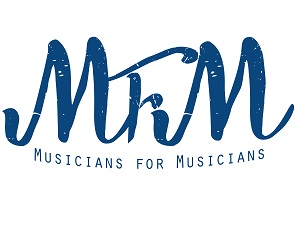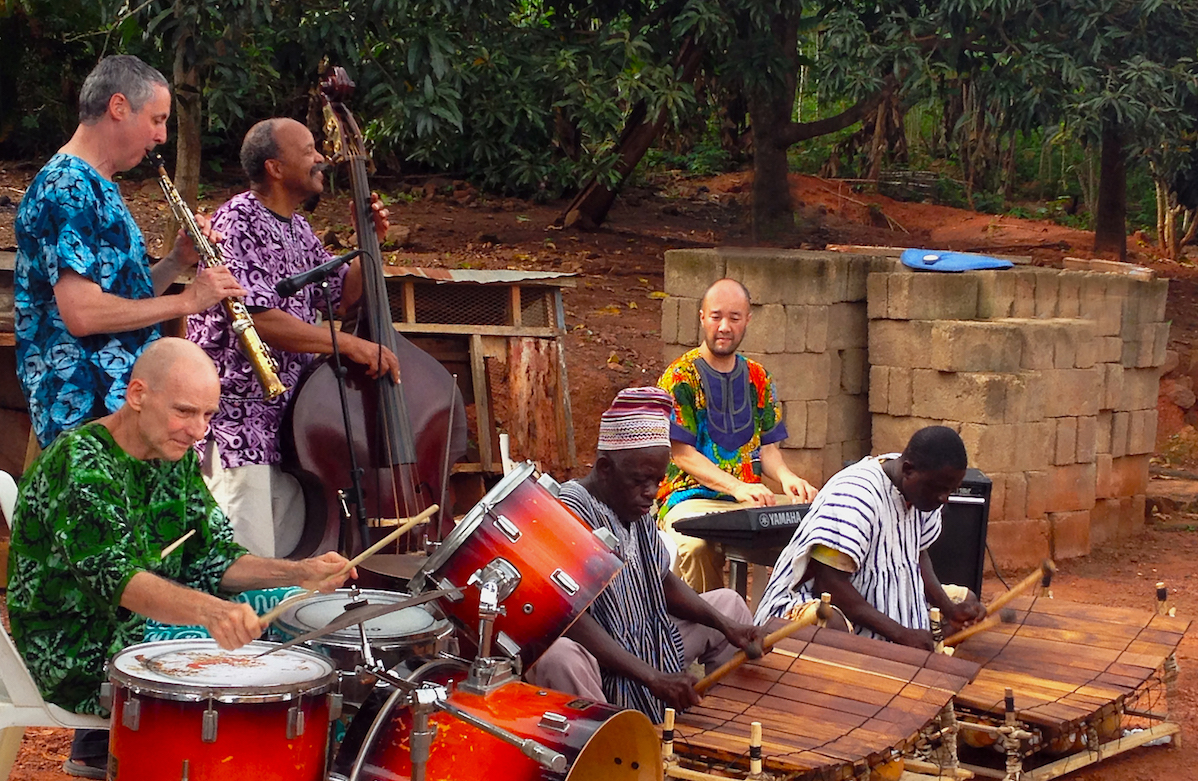MFM Presents: “Music Is Essential” ZOOM Webinar #8 with Royal Hartigan Speaking about “The Inner Pulse of West African Rhythms”
“This music helps us to get through the insanity of this life with a heart.” – royal hartigan
By Dawoud Kringle
On Tuesday, January 25th, 2022, MFM presented its 8th Music Is Essential Webinar. This episode, “The Inner Pulse of West African Rhythms,” featured Royal Hartigan. He gave a background and demonstration how the sounds of West African traditional music can be adapted for drumset, ensembles, and composition.
Royal Hartigan is a percussionist, pianist, tap dancer, educator, activist, and author. For more than three decades he has studied, lived, and performed the music of Asia, Africa, Europe, West Asia, and the Americas as well as African American blues, gospel, funk, hip-hop, and jazz traditions. He has made a life focus on the sounds and meaning from world cultures, bringing new concepts to drum set and jazz ensemble interaction, including original and Indian time cycles, West African rhythms and structures, music from the traditional gong cultures of the Philippines, China, Korea, and Java, which he has adapted to drum set in coordinated independence, layers of time, timbrel shading, and tonal motion. He has worked with master artists and musicians, dancers, visual artists, poets, social activists, and others to bring people together in celebration of our common humanity across cultures and national boundaries, through the medium of creative music in the African American tradition.
In 1991 he created his ensemble, Blood Drum Spirit, that uniquely adapts world music cultures and exploratory jazz.
He became a member of MFM in November 2021.
The meeting was hosted by Adam Reifsteck.
After Reifsteck’s introduction, Hartigan made an opening statement that was quite bold and decisive. He said that it’s obvious he is not of the cultures whose music he studied. He made it clear that while he lived in the culture, he didn’t feel he had the right to just go out and play the music of ancient African civilizations. He only plays and teaches their music with their permission, and gives thanks to his teachers. In other words, he holds the music of these cultures in reverence, and shows the respect it deserves. This set the tone of the rest of the webinar, and spoke well of Hartigan’s character.
Hartigan began the lesson by saying that the sounds of the percussion is not just a sound. It is intended to express meaning. One of these is linguistic; drum tones are used as a means of communication.
Through the webinar, Hartigan demonstrated an impressive variety of rhythmic patterns, using different percussion instruments, that expressed the spirits and meanings of different African and Asian cultures.
At one point, Hartigan was demonstrating a pattern that communicates honoring the recently deceased. When he finished, he asked if the music he played reminded the participants of anything. Dave Liebman said “Elvin Jones.” Sohrab Saadat Ladjevardi added that he heard some elements of Persian music in it, pointing out the universal nature of what was being played. This started a brief discussion between all the participants.
At this point, Hartigan moved to another room in his house, where he demonstrated how the rhythms he’d demonstrated earlier can be adapted to the drum set. It’s clear that these ideas can be translated from instrument to instrument, and even across cultural barriers.
Hartigan invited the participants to contact him if they wish to learn more about this music.
This was followed by an open discussion between all the participants. Ladjevardi and the others brought a great deal of interesting comments and information to the discussion.
The details of the music Hartigan demonstrated are far too extensive, nuanced, and sublime to be explained in this article. Suffice it to say that his knowledge of the music, the instruments, and the history and cultures are clearly that of a master and scholar. And Hartigan’s presentation was always informative, well explained, engaging and fascinating. He also said that “This music helps us to get through the insanity of this life with a heart.” Clearly, Hartigan is engaged in a labor of love.

